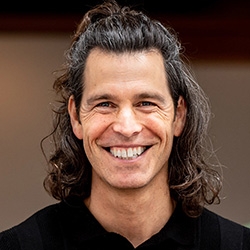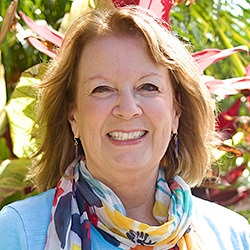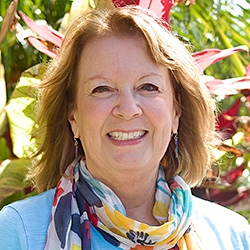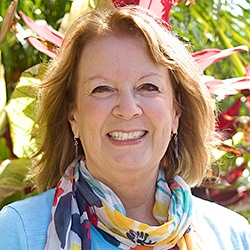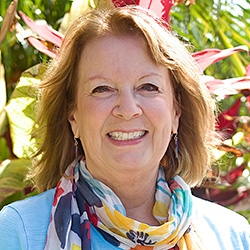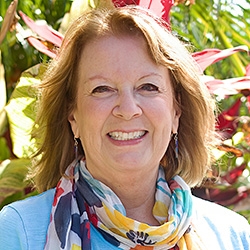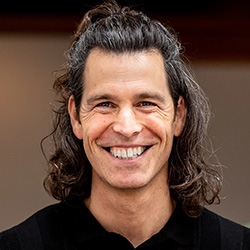

Search Results: preparation
-
- Share NVC in a way that keeps your group engaged
- Walk away with practical facilitation tips and 5 session outlines
- Know how to respond to nay-sayers
- Learn how to promote your work
-
- Share NVC in a way that keeps your group engaged
- Walk away with practical facilitation tips and 5 session outlines
- Know how to respond to nay-sayers
- Learn how to promote your work
-
Based on your observations of "power with" interactions choose a specific, do-able to practice so that you're prepared the next time you're in a power under/power over dynamic. Keep the practice simple to do in a difficult moment. Then reflect: identify what you did (internally or externally) or said that (de)escalated the dynamic. This practice requires noticing what went well, self compassion, perseverance, and support.
-
Fear and self-doubt often hold us back from taking action, but Roxy Manning urges us to confront these barriers, prepare for challenges, and build strong support systems. Social change is tough, and frustration is inevitable, but by embracing our humanity and staying committed, we can create meaningful impact. The key is to step in with courage, empathy, and a plan to sustain the journey.
-
Fear and self-doubt often hold us back from taking action, but Roxy Manning urges us to confront these barriers, prepare for challenges, and build strong support systems. Social change is tough, and frustration is inevitable, but by embracing our humanity and staying committed, we can create meaningful impact. The key is to step in with courage, empathy, and a plan to sustain the journey.
-
Why is it so difficult to change our patterns even when we want to, even when we experience shame or despair about them? Arnina Kashtan offers some of the common pitfalls and concrete steps to overcome them in the future.
-
Strengthen your NVC practice to meet conflict with empathy, and ask for what you need.
-
I ended last month’s Growing Roots letter with a question to you: “Do you remember that you are a gift?” I hope you had moments throughout July that reminded you of this! I am still thinking about it, actually.
-
Hello friends. I’m Roxy Manning. When Mary invited me to write this letter, I could not help but reflect on what has been most alive for me recently… the way many of us will easily help someone else, but fear to ask for help for ourselves. On December 4, I had an operation. My doctor predicted my recovery would take three weeks. As I prepared for the time off, I rushed to complete all of my work and personal commitments. I prepped and froze dishes so I would have things to eat after and arranged meal deliveries. Very few people knew I was having an operation and I reached out to only one person for support after. In hindsight, I was doing everything I could so...
-
No one on their deathbed wished they worked more. Working is unlikely to bring a meaningful life. And yet greeting friends with survivalist expressions, such as, "I'm dead-tired", can feel like affirming our own worth. Taking time off can bring inner spaciousness, ease, rest and consequently time to meet life, to really meet it. Which brings more clarity into the question of what we would like to celebrate on our deathbed.
-
Jim and Jori offer practical tools to help us develop patience through a process they call WAIT: Wake up, Accept, Insight, Take a step.
-
Trainer tip: Demands are more likely to limit the possibilities and create distance between people. The trick to asking something as a request is valuing everyone’s needs equally. When you value everyone’s needs equally, then you are more willing to come to solutions that satisfy everyone. It thus opens possibilities and helps build connection.
-
Transform your meeting facilitation with sociocratic tools like circle meetings and more.
-
People find confrontation inspirational when done with full compassion and intention to support. To do this, transform your own judgments or distress, come with useful content plus spot-on timing, and the best interests of the receiver in mind. Read on for questions you can ask yourself in preparation for this, and more.
-
Listen to three interwoven tales of love, vulnerability, courage and healing by CNVC Certified Trainer and Storyteller Leo Sofer.
-
Trainer Tip: Every single time you say or do something, even when you experience pain or regret, you are trying to meet a need. Forgiveness begins when we acknowledge the needs we were trying to meet in the situation.
-
Trainer Tip: We often find ourselves slipping into old behaviors that we would rather change. This is because we don’t have a new plan for responding to the same old situations. In that case, notice whether you are slipping into old behaviors today. Connect to your unmet needs and then identify a new strategy for the situation.
-
Trainer Tip: Someone’s strategy for meeting needs may look different from yours, but it doesn’t mean they aren’t meeting them. This can happen when they appear to be messy and disorganized, but from their perspective they have it organized. It's just less apparent to you how they have organized it. Read on for a related anecdote.
-
- Celebrate and nurture your relationship to the Earth — and each other!
- Explore your connections to family, partner, work, nature, self and more
- Discover new ways to grow in community and work together to make this world a better place
- Engage and immerse yourself in NVC while making new friends!
-
- Learn how to use empathy to dissolve conflict
- Deepen your NVC skills to help let go of judgments
- Explore approaches for asking for what you want
- Listen to the conflict within yourself

Quick Links
Subscription Preferences
Stay In Touch!
Looking for ways to keep up with NVC Academy news, get special offers, free resources, or words of inspiration? Here are five ways to stay engaged:






